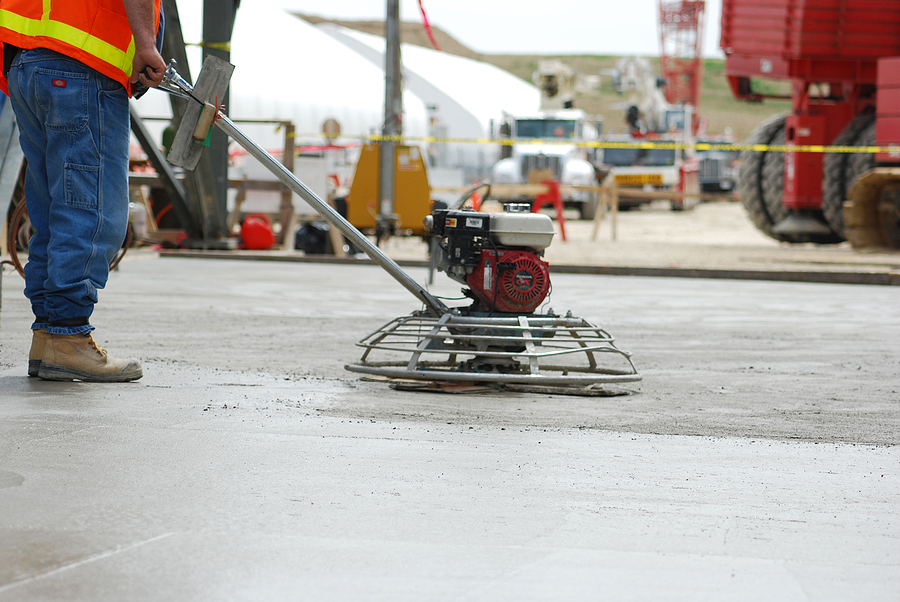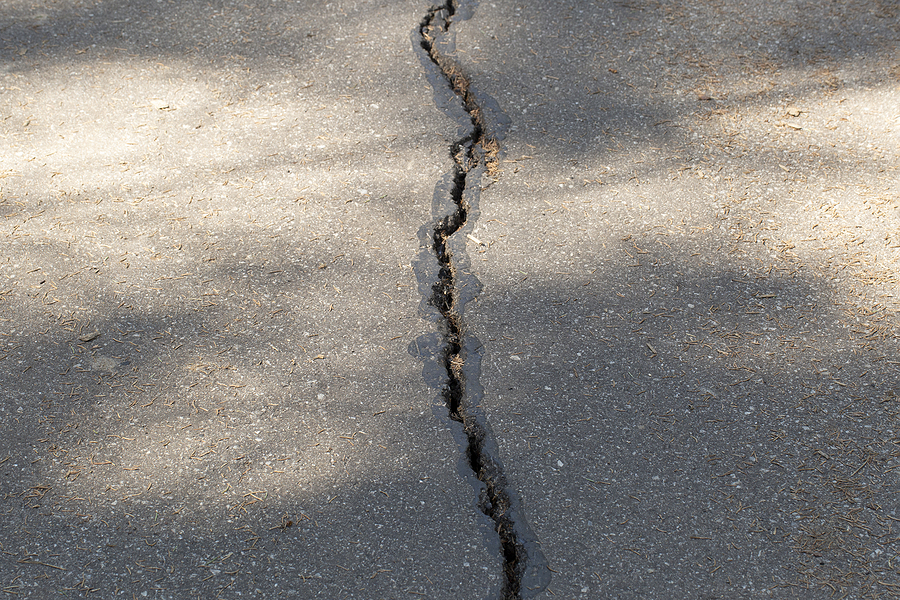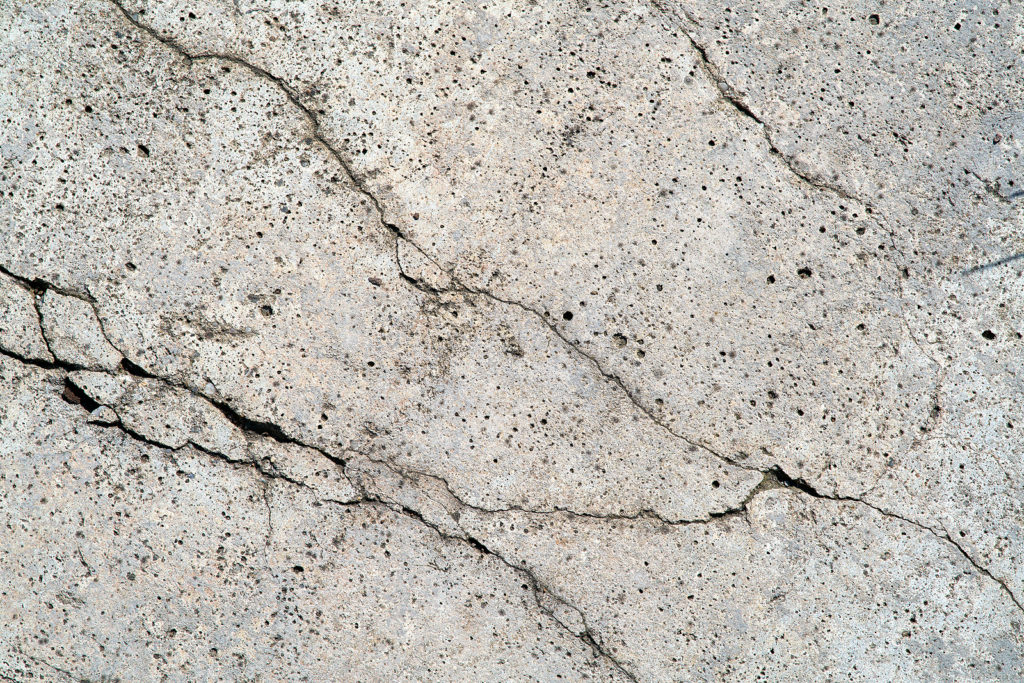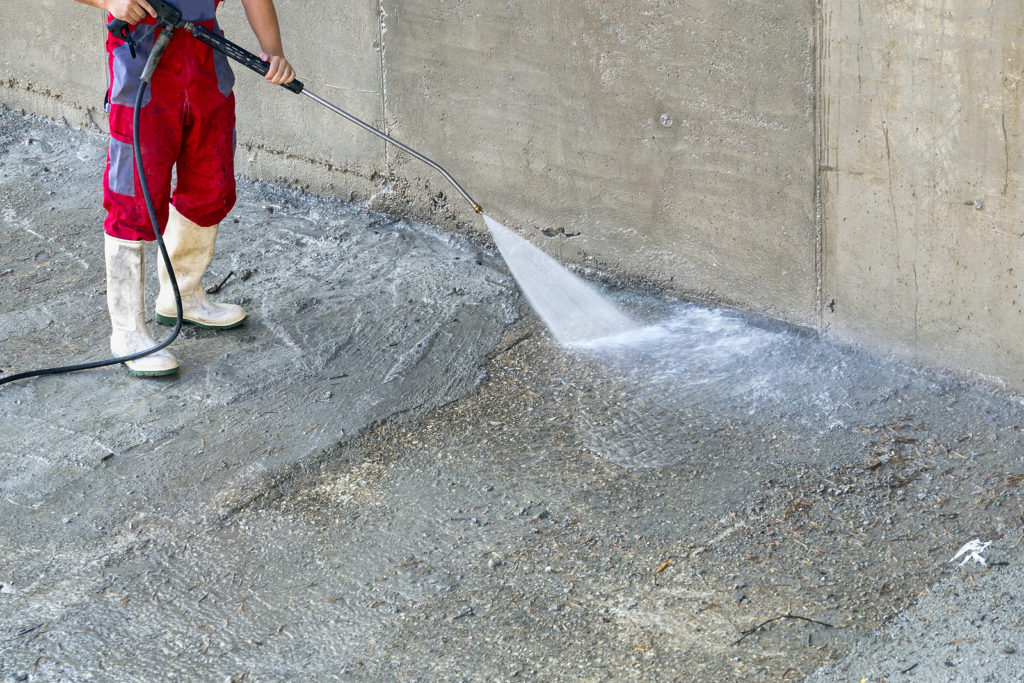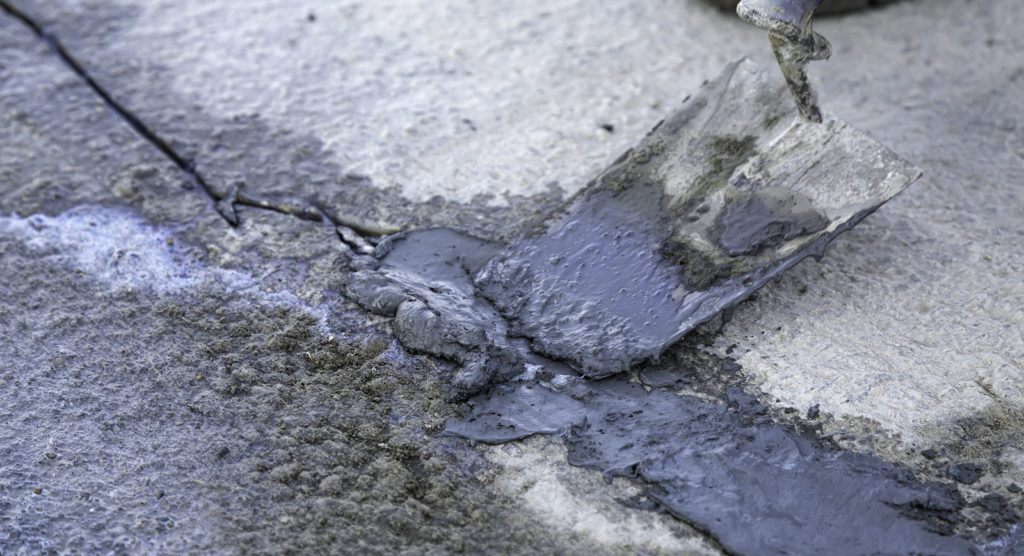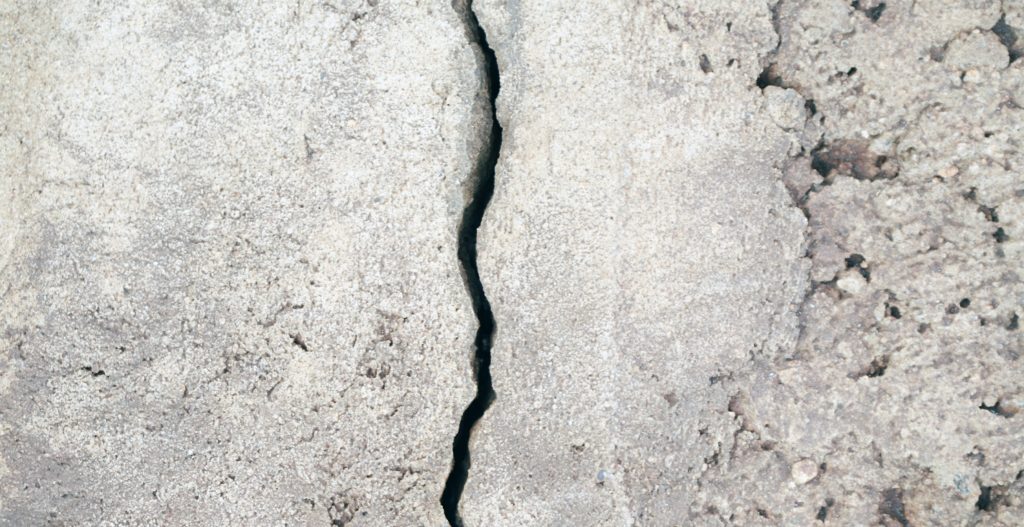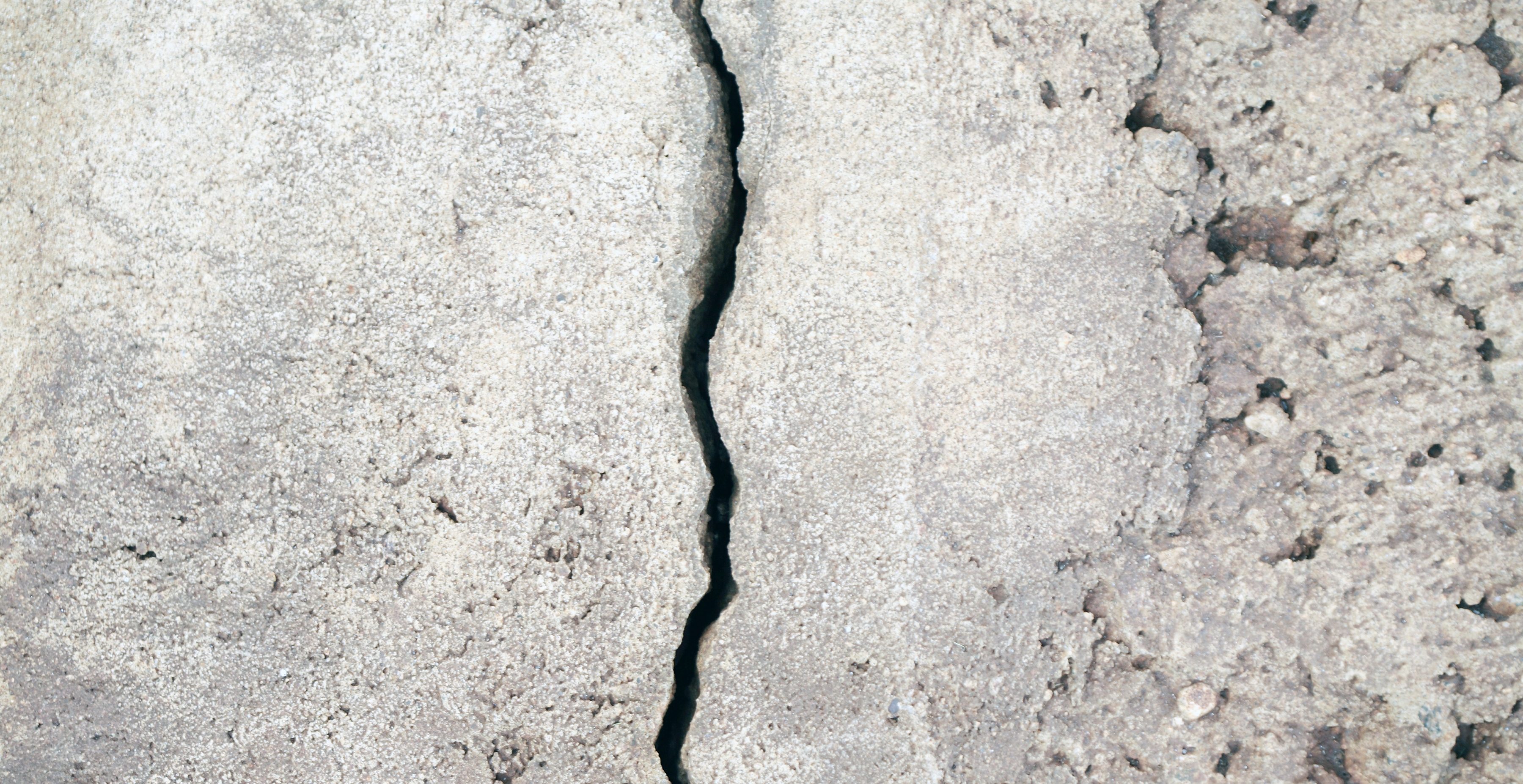The foundation of any structure stands about as literally as anything can for the rest of the building. When it comes to property, concrete problems aren’t just cracks and blemishes—they’re deep-rooted issues that can spread, deteriorate and, if left unchecked, significantly impact both the value and safety of your property.
Whether you’re a homeowner, business-owner, or facility manager, understanding the intricacies of concrete problems and the steps to address them is a vital part of property stewardship. Unsure where to begin when faced with concrete concerns? Don’t worry; we’ve got you covered.
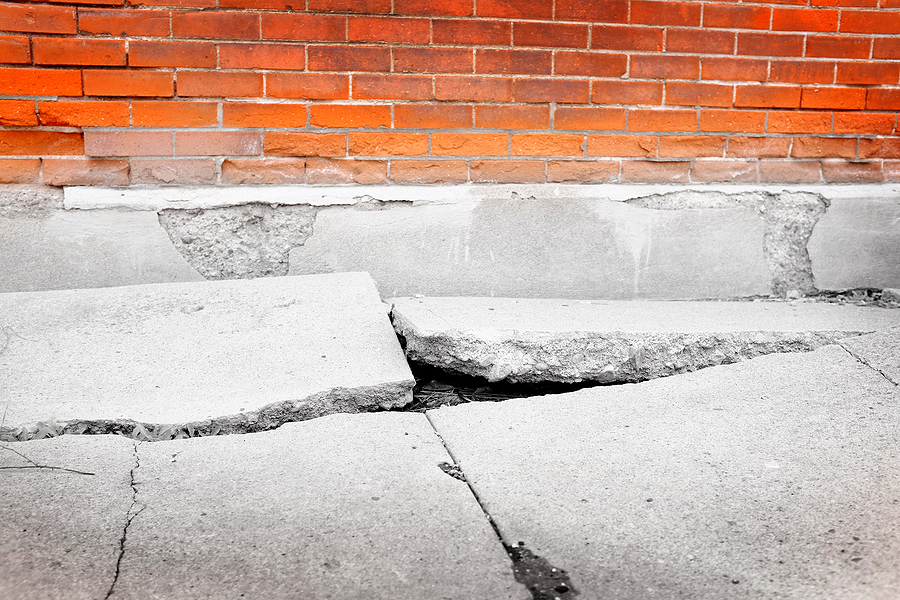
Common Concrete Issues
Concrete, despite its strength and durability, is not exempt from the ravages of time and the elements. Common concrete issues like cracks, which can range from hairline fissures to gaping maws, often signal underlying problems. Understanding and addressing these common concrete concerns early can prevent minor issues from escalating into costly repairs.
Cracks – Cracks in concrete can range from small, negligible hairlines to large, gaping voids, often appearing due to a variety of reasons such as shrinkage, settlement, or freeze-thaw cycles.
Spalling – Spalling is the flaking or chipping of the concrete surface, a visible indicator that the integrity of concrete is compromised, often by water intrusion or corrosion of the reinforcing steel.
Settlement and Heaving – These terms refer to the sinking or upward movement of concrete slabs, typically caused by soil erosion, poor compaction, or freeze-thaw cycles.
Discoloration – Whether from aging, chemical exposure, or improper curing, discolored concrete not only looks unpleasant but can hint at more severe issues such as contamination or improper mix ingredients.
Mold and Stains – While not structural issues, mold growth and stubborn stains can cause a range of environmental and aesthetic concerns.
Impact on Property Value and Safety
Concrete problems are more than just unsightly—they can be indicative of and can pose serious risks to property value and safety. In terms of property value, aesthetic and structural soundness are significant factors in determining property value. A devalued property can have considerable financial repercussions. As for the concern for safety, cracked or sunken concrete can be a tripping hazard for occupants and visitors, and in an operational facility, this can lead to legal liabilities and safety risks.
DIY Versus Professional Service
The decision between handling concrete problems yourself or hiring a professional is not a simple one. Here are the most talked-about pros and cons:
Do It Yourself – DIY can be cost-effective for small repairs, and it’s satisfying for some property owners. However, the risks of do-it-yourself concrete repair include not addressing underlying issues or making the problem worse with improper techniques.
Professional Paving – Experienced professionals have the tools and knowledge to address a wide range of concrete problems effectively and efficiently. Their work is often backed by licensed and bonding and can ensure problems do not return.
Preventive Maintenance Tips
Perhaps the most effective approach to addressing concrete issues is to proactively prevent them. Implementing preventive measures can significantly contribute to the longevity and durability of concrete structures. Here are some key strategies for proactive concrete care:
► Regular Inspections – Frequent checks can help spot and address problems before they worsen.
► Proper Drainage – Ensure your property has effective drainage to minimize water-related issues.
► Vegetation Control – The roots of plants can cause concrete upheaval—keep on top of your vegetation control plan.
► Prompt Repairs – Don’t wait. Address concrete issues as soon as you notice them.
► Sealing and Maintenance – Properly sealing concrete can protect it from the elements and staining.
Final Thoughts
Concrete problems on your property are a call to action. Whether you’re dealing with a small crack or a major upheaval, understanding the issues, their implications, and the approach to solving them could not only save you money but can ensure the continued safety and usability of your property.
The longevity and aesthetics of a property are not just about initial construction but about the ongoing vigilance and maintenance of those systems and materials that keep us safe and secure. Next time you see that hairline crack, don’t shy away from addressing it. Your property—and those who spend time within it—will thank you for the care and attention.
Don’t let concrete problems degrade the value and safety of your Indianapolis property. Contact ACI Asphalt and Concrete at 317-549-1833 and safeguard your investment with our expert commercial concrete repair and paving services in Indianapolis, Indiana. We also provide ready mix concrete supply and delivery for both residential and commercial buyers.
Related Posts:
Commercial Concrete Repair: Preserving and Protecting Your Investment
The Benefits of Regularly Scheduled Commercial Concrete Repairs
Common Questions About Sealing Concrete Pavements

